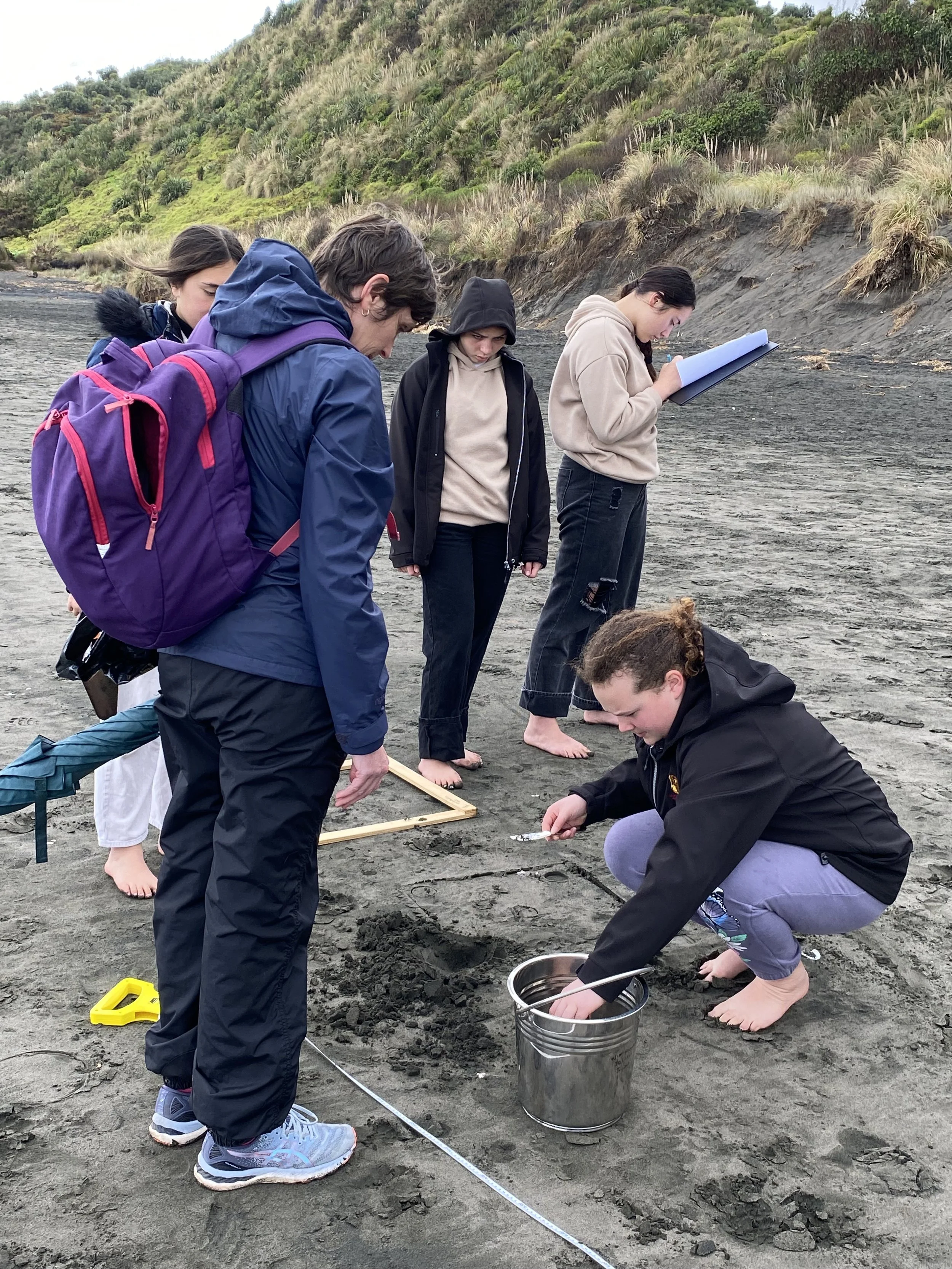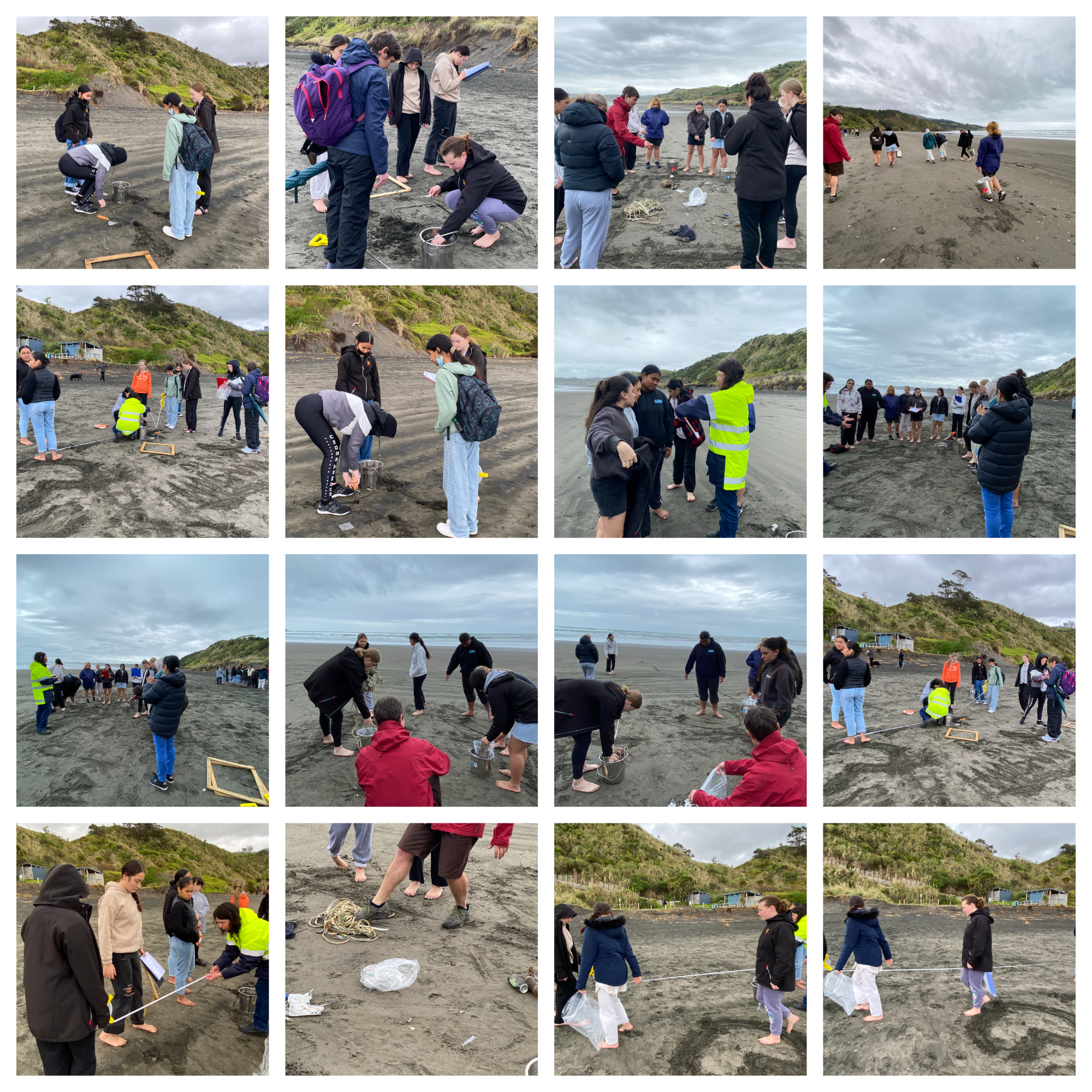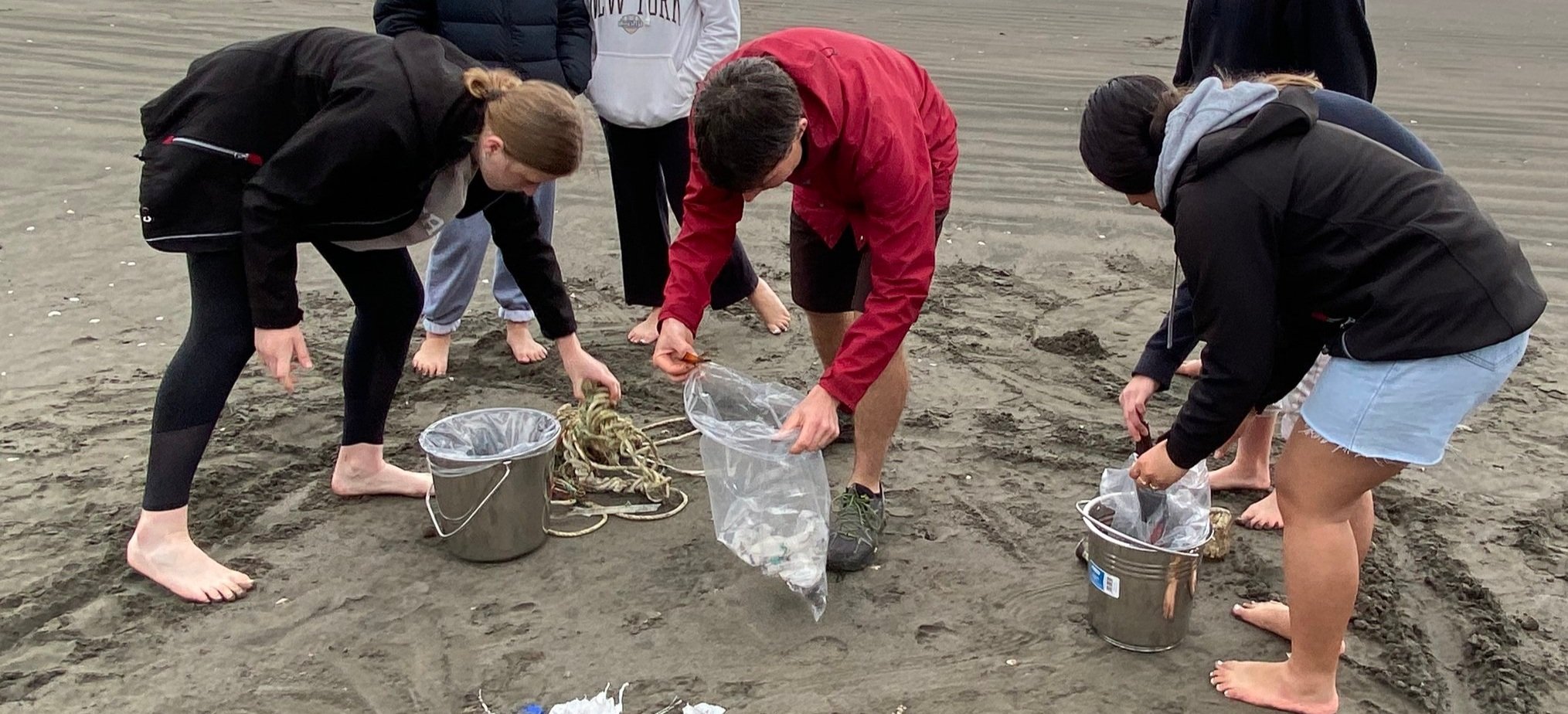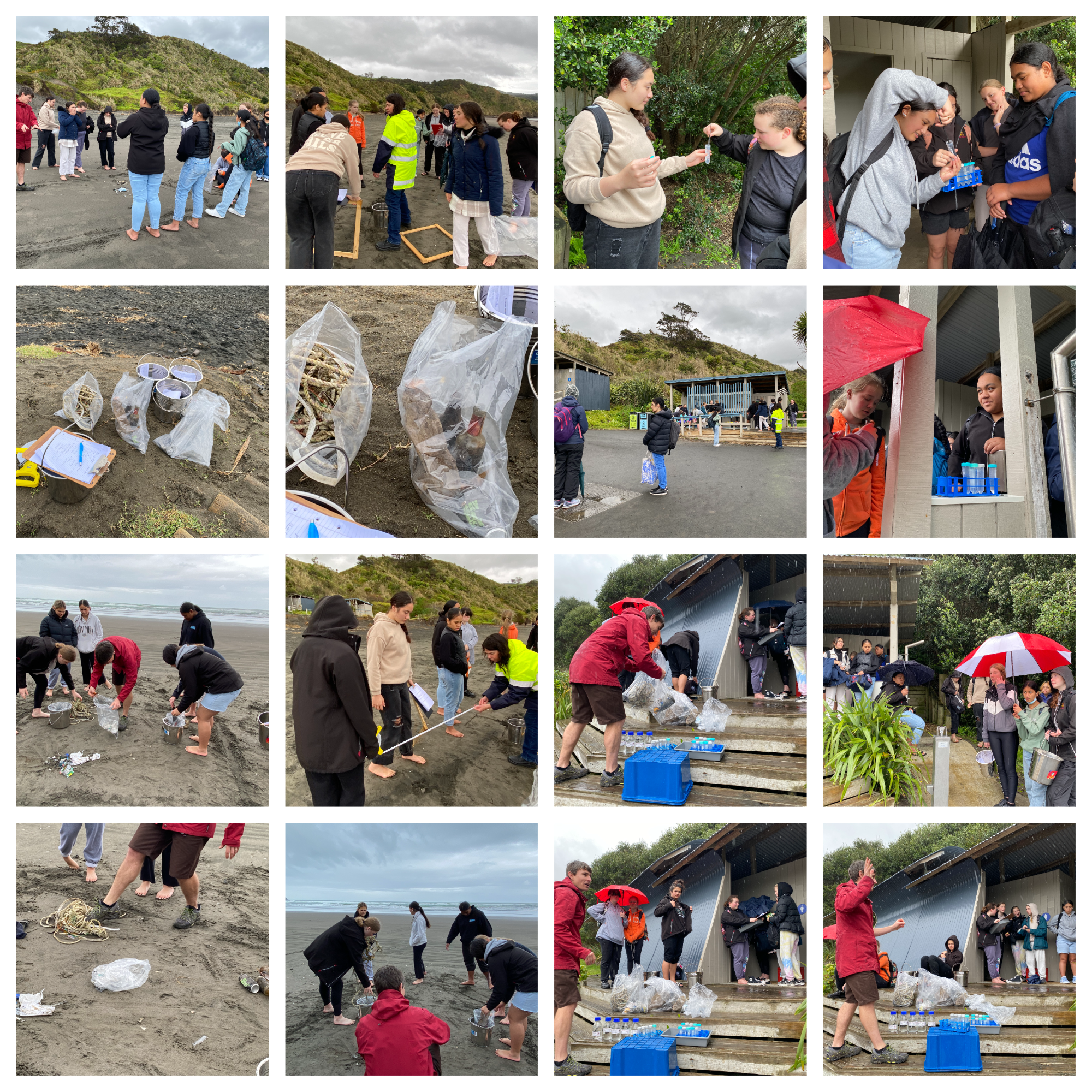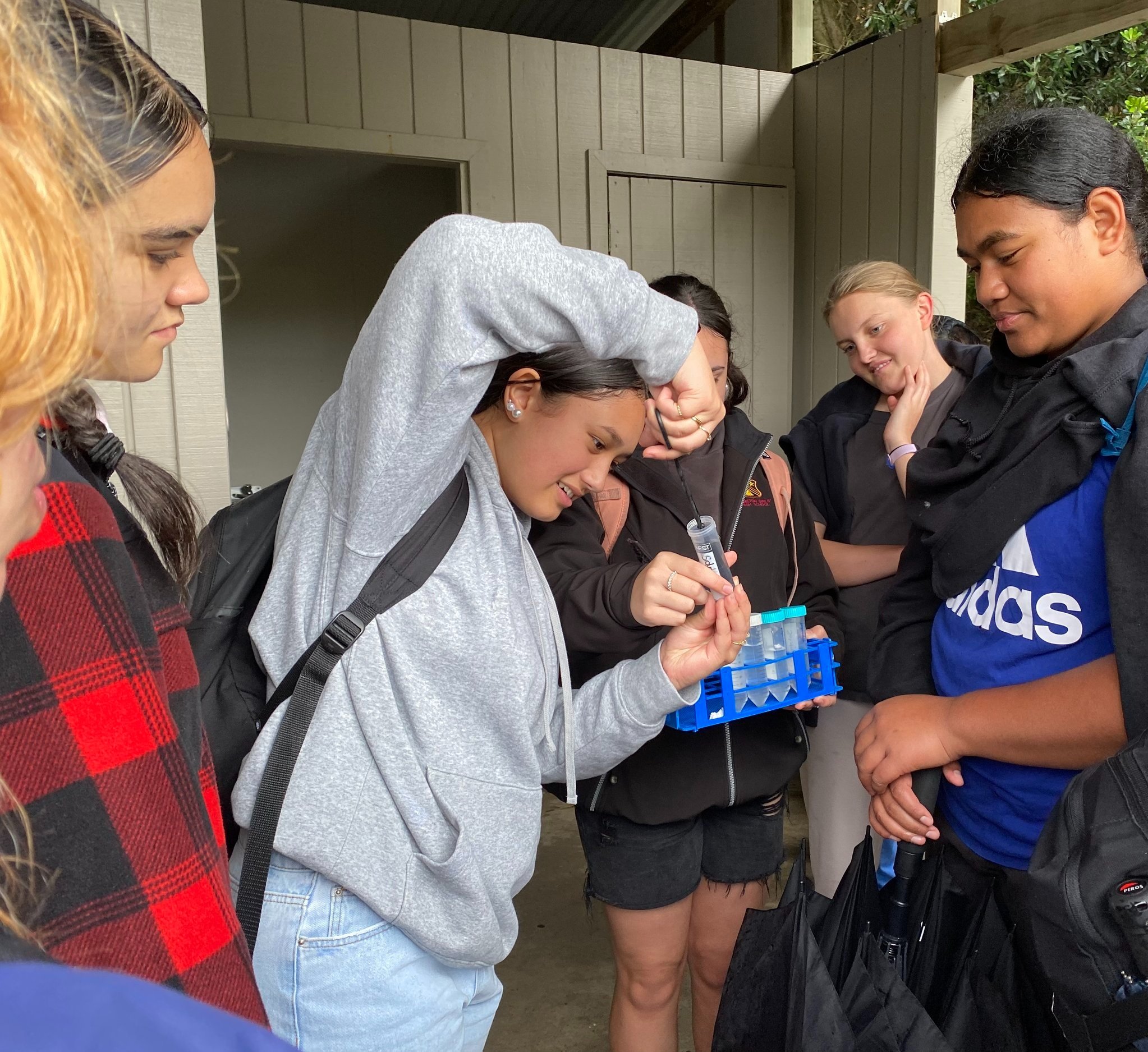Microplastics - Raglan Beach
Microplastics Investigation
Students from Hamilton Girls High did their bit for the environment as they combed sections of Raglan beach for plastics. Scavenging for waste not only left Raglan beach cleaner but made students aware of how microplastics can easily flow up through the food chain.
Teaming up with biomaterial researchers Dr Kate Parker and Jamie Bridson from Scion Institute, PTC Trust was pleased to facilitate this opportunity for rangatahi to carry out microplastics sampling of the sand and the plastics found on the beach.
While the girls’ mission was to identify microplastics through testing, they also found a range of macroplastics scattered along the beach including rope, bottles, tin, bottle caps and much more. Taken together both micro and macro plastics are harmful to our marine creatures and their habitats.
The PTC workshop was timely given that TV 1 News recently reported “microplastics found in NZ fish: How safe is our seafood?”
‘The year-long study investigated by the University of Otago team leader Isabella Clere examined 155 fish from 10 species, including Red Cod and Tarakihi, caught off the Otago coast’.
As scientist for the day, our students had the opportunity to test the plastics collected and identify the type of microplastics discovered. They even tested packaging from their own lunches and were amazed that they could correctly identify the type of macroplastics and further corroborate these results against the symbol of the packaging.
This experience will certainly inspire these future leaders to become more mindful of how they use and dispose of plastic and rubbish in general. Fostering this idea of social responsibility will go a long way in helping the environment.

